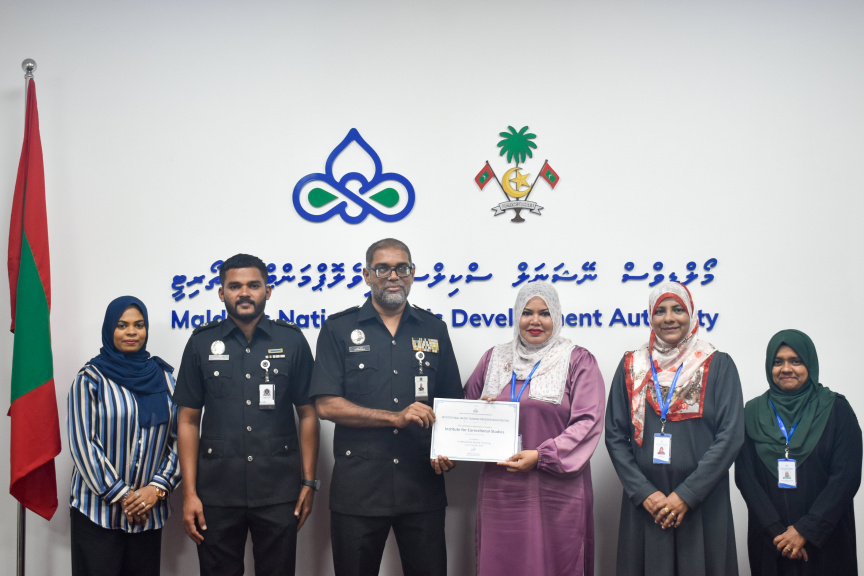
The certificate of registration presented by MNSDA Chief Executive Officer Dr. Zahra Mohamed to Superintendent Ibrahim Nashid of ICOST, along with officials from both agencies, October 5, 2025. (Photo/MNSDA)
The Institute for Correctional Studies (ICOST) has officially registered as a Registered Training Organisation (RTO) with the Maldives National Skills Development Authority (MNSDA).
This significant development will enable ICOST to provide nationally recognized vocational training programs for inmates and correctional staff.
The certificate of registration was presented by MNSDA Chief Executive Officer Dr. Zahra Mohamed to Superintendent Ibrahim Nashid, who accepted it on behalf of ICOST.
ICOST, located in Malé, serves as the official training and educational body of the Maldives Correctional Service. Its core mission is to cultivate a highly skilled and professional workforce within the correctional service and to deliver educational programs crucial for the rehabilitation of inmates.
The MNSDA, operating under the Ministry of Higher Education, Labour and Skills Development, is the primary regulatory body for vocational education and skills development in the Maldives. Its mandate involves establishing and managing a robust technical and vocational education and training (TVET) system that effectively addresses the labor market demands of the nation.
Discussions at the registration meeting focused on the implementation of technical skilled labor programs tailored for long-term prisoners, as well as the specialized training of correctional staff. Special vocational programs designed for women were also a key topic of discussion.
As an MNSDA-registered RTO, ICOST will align its training curricula with the national competency standards set by the MNSDA. This ensures that the skills acquired by ICOST students meet stringent national benchmarks for quality and relevance, enhancing their employability upon release.
An MNSDA official, when contacted by Sun, confirmed that the discussed programs would proceed and that enrollment would soon be open.
The Ministry emphasized that the overarching goal of these programs is to empower prisoners to become productive members of society after their release, equipping them with nationally recognized certificates.
The Institute of Corrections currently offers a range of courses for prisoners, from Certificate levels One to Three. The certificates available to inmates span diverse fields, including agriculture, computer applications, sewing, baking, and electric wiring.